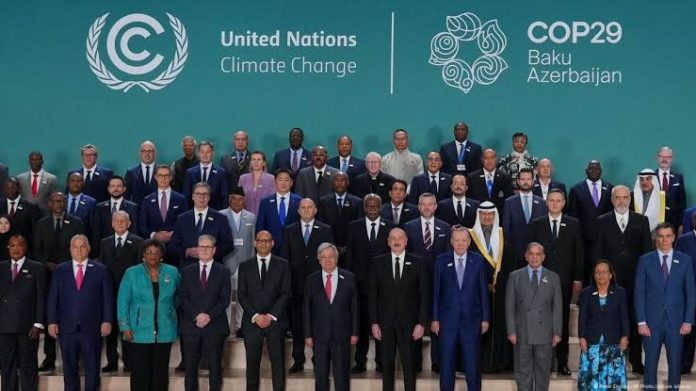The COP29 climate summit, held in Abu Dhabi this November, has become a focal point for global action on climate change. With world leaders, scientists, and activists in attendance, the conference emphasizes urgent measures to combat rising temperatures, reduce emissions, and accelerate the transition to renewable energy.
Focus on Net Zero Goals
The spotlight this year is on achieving net zero carbon emissions by 2050. Nations are presenting revised strategies, with many pledging to cut emissions more aggressively. For instance, the European Union announced its new plan to reduce greenhouse gas emissions by 65% by 2030. Similarly, the United States reaffirmed its commitment to phasing out coal power plants by 2035.
However, some nations, particularly those heavily reliant on fossil fuels, have pushed back against rapid changes. Saudi Arabia and Russia called for a more gradual transition, emphasizing the importance of energy security alongside climate goals.
Innovative Solutions Take Center Stage
Innovations in green technology are dominating discussions. Countries showcased advancements in solar energy, carbon capture, and electric vehicle infrastructure. Notably, the UAE unveiled the “Green Horizon Project,” a $50 billion initiative aimed at boosting renewable energy capacity and creating sustainable urban spaces.
Meanwhile, private companies also pledged support. Tech giants like Google and Microsoft announced investments in AI-powered climate solutions, such as tools to monitor deforestation and optimize energy usage.
Financing Climate Action

A key challenge at COP29 is mobilizing financial resources for developing nations, which are disproportionately affected by climate change but lack the resources to mitigate its impacts. The UN called on wealthy nations to honor their $100 billion annual pledge for climate finance, a commitment first made at COP15.
Developing countries emphasized the need for “loss and damage” funding to address irreversible climate impacts, such as rising sea levels and extreme weather events. Talks are ongoing to establish a global fund for such cases, though disagreements on contributions and oversight remain.
Youth and Indigenous Voices Lead Protests
Outside the conference halls, youth and indigenous groups are making their voices heard. Activists like Greta Thunberg urged leaders to move beyond rhetoric and implement meaningful action. Indigenous representatives highlighted the critical role their communities play in conserving natural ecosystems and demanded greater representation in decision-making processes.
Challenges Ahead
While COP29 has seen significant commitments, critics argue that the pace of change remains insufficient. Fossil fuel subsidies, slow implementation of green policies, and lack of accountability mechanisms are key obstacles. Additionally, the absence of binding agreements leaves many climate pledges vulnerable to political and economic shifts.
A Defining Moment
As COP29 concludes, the world watches to see if the promises made in Abu Dhabi will translate into concrete actions. With the effects of climate change becoming increasingly evident, the decisions made at this summit could shape the planet’s future for generations to come.



